Are you ready to take your fashion design aspirations to the next level? Collaborating with other talented designers can open up a world of creative possibilities and opportunities! Crafting a well-structured collaboration agreement is essential to ensure that all parties are on the same page and that the vision comes to life seamlessly. Join us as we delve into the key elements of a fashion design collaboration agreement to help you navigate this exciting journeyâread on for more insights!

Parties Involved and Contact Information
The collaboration agreement for a fashion design project includes essential details about the parties involved. The parties may consist of fashion designers, brands, or manufacturers. Each entity's legal name, business address, and contact information (including email and phone numbers) should be clearly outlined. For instance, Designer A, an emerging fashion artist based in New York City, can provide their contact phone number, while Brand B, a well-established clothing line based in Los Angeles, includes their representative's email. Additionally, both parties should affirm their understanding of roles, responsibilities, and collaboration objectives to foster a successful partnership in the fashion industry.
Scope of Collaboration and Deliverables
The scope of collaboration and deliverables in a fashion design partnership centers around the co-creation of unique apparel, accessories, or footwear items. This agreement outlines key phases, including conceptual development, material sourcing, prototype creation, and final product delivery. Designers will focus on specific trends, such as sustainable materials (like organic cotton or recycled polyester) and innovative fits, to appeal to target markets, such as millennials or eco-conscious consumers. Timelines must be established for review and feedback sessions, ensuring the project's alignment with seasonal fashion weeks, like New York or Paris, for maximum visibility. Deliverables include detailed sketches, technical specifications, sample collections, and, ultimately, production-ready patterns that reflect the collaborative vision.
Intellectual Property Rights
Fashion design collaborations often involve intricate details regarding intellectual property rights that govern the creation, use, and ownership of innovative designs and concepts. It is essential for designers to outline the ownership of original creations, ensuring that copyrights and trademarks are appropriately addressed. For example, when two designers collaborate on a new clothing line, both parties must agree on how the intellectual property rights will be shared or retained, especially if one party uses proprietary patterns or techniques that are trademarked. License agreements can also specify terms related to commercial use and distribution of the designs, protecting the interests of both parties involved in the collaboration. Ensuring clarity on these rights not only protects the individual contributions but also fosters a cooperative and innovative working environment.
Payment Terms and Compensation
Fashion design collaboration agreements establish clear parameters for payment terms and compensation arrangements. Typically, designers (individuals or brands) should define payment structure--flat fee, commission percentage, or royalties. Specific amounts should reflect market standards, ensuring fairness based on experience and project scope. Payment schedules (upfront, milestones, or upon completion) need clarification to avoid disputes. In addition, terms regarding reimbursements for materials or services should be outlined. Adding considerations for potential expenses (travel, production costs) ensures both parties acknowledge all financial obligations. Furthermore, the agreement may specify conditions for renegotiation, acknowledging changes in project scope that might impact financial arrangements.
Confidentiality and Non-Disclosure Clause
A fashion design collaboration agreement outlines the terms and conditions governing creative partnerships between fashion designers, including crucial clauses for confidentiality and non-disclosure. These clauses serve to protect sensitive information shared during the collaboration, such as proprietary design concepts, material selections, trade secrets, and marketing strategies. For example, the confidentiality clause mandates that all parties refrain from disclosing any confidential information to unauthorized third parties, while specifying the duration of confidentiality obligations (typically ranging from one to five years). The non-disclosure clause ensures that involved partners cannot exploit each other's intellectual property for personal gain or commercial advantage without explicit permission. Such agreements are vital for fostering trust and protecting the creative integrity of collaborative fashion projects that may take place in bustling fashion capitals like Paris, Milan, or New York.

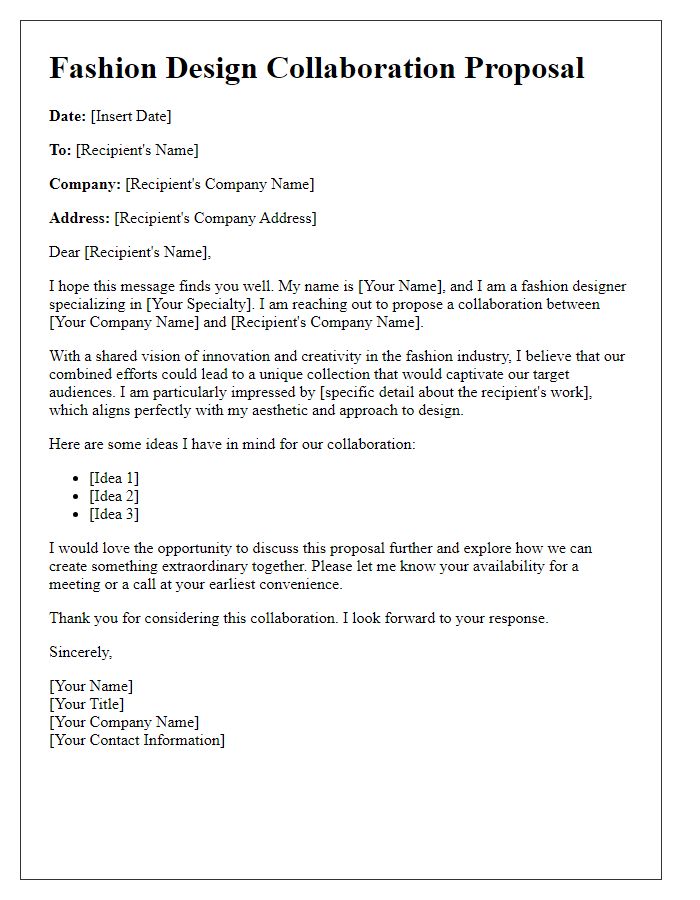
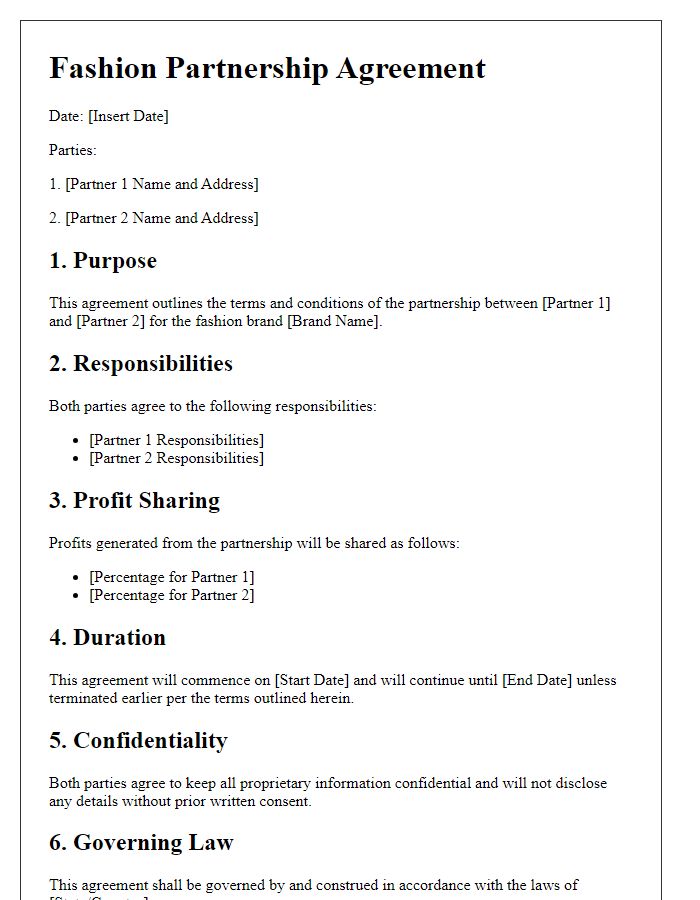
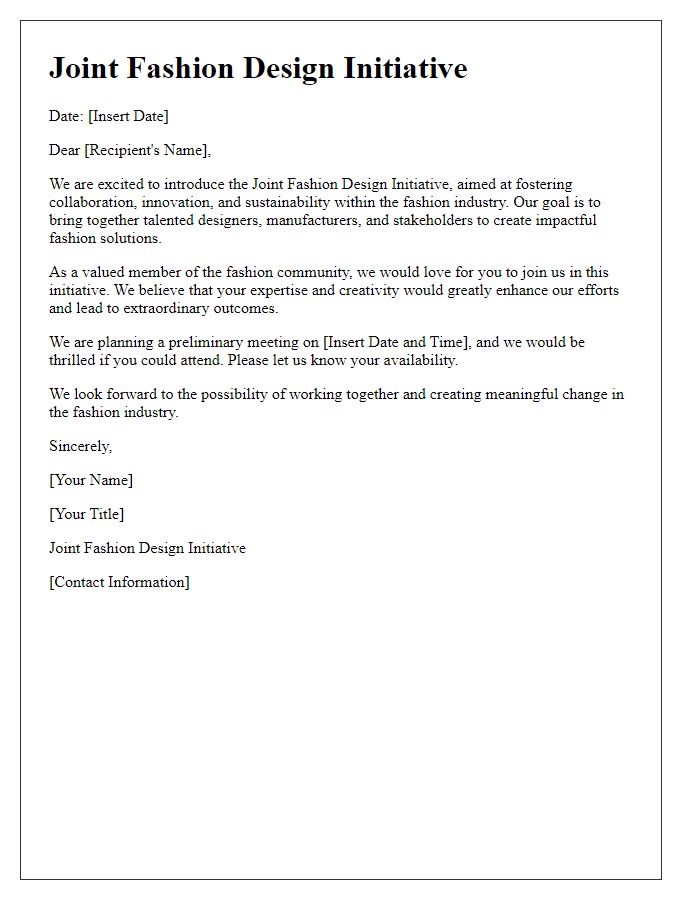
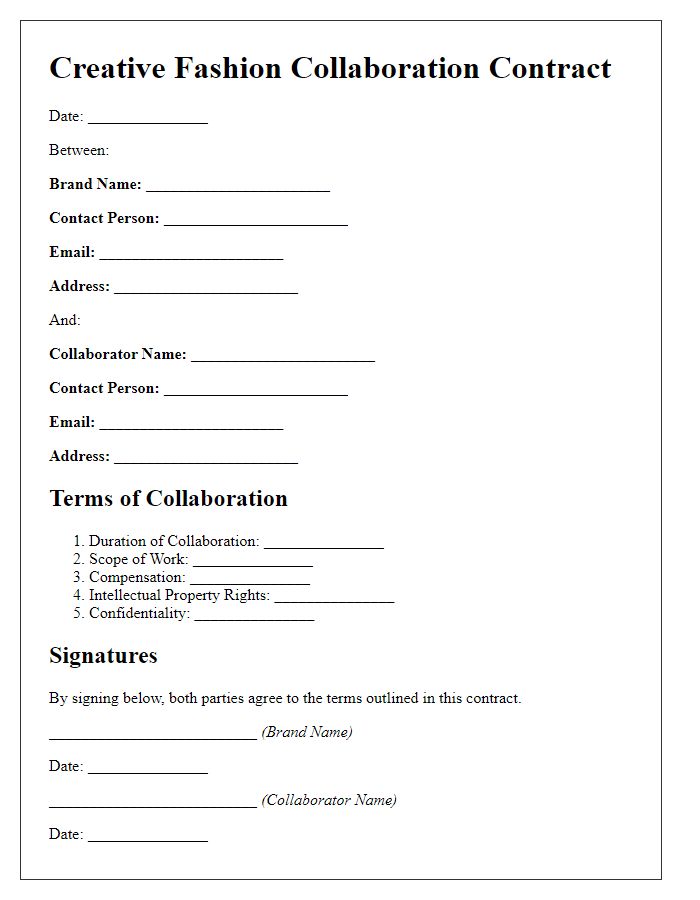
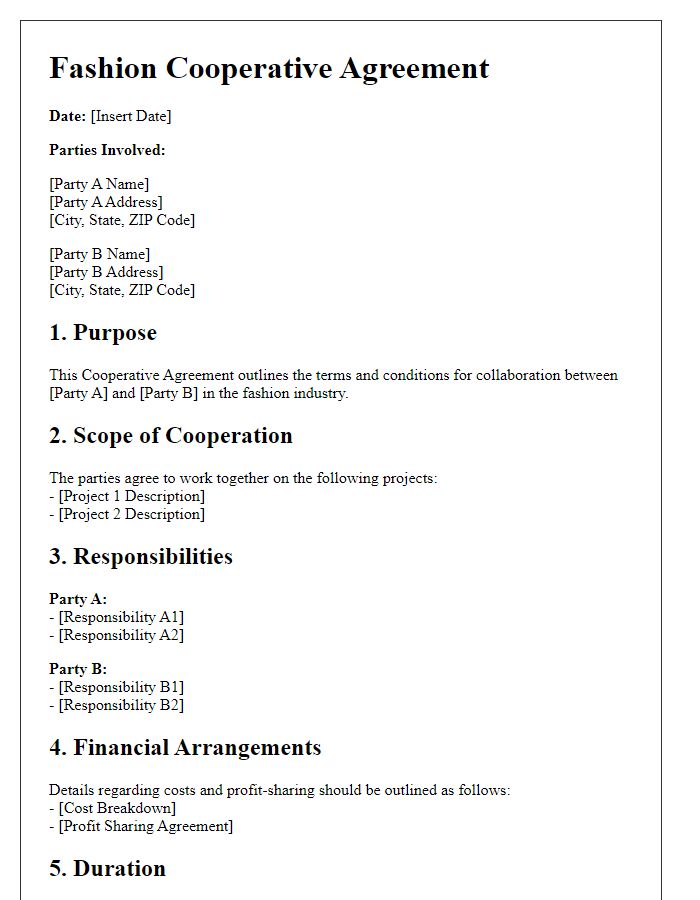
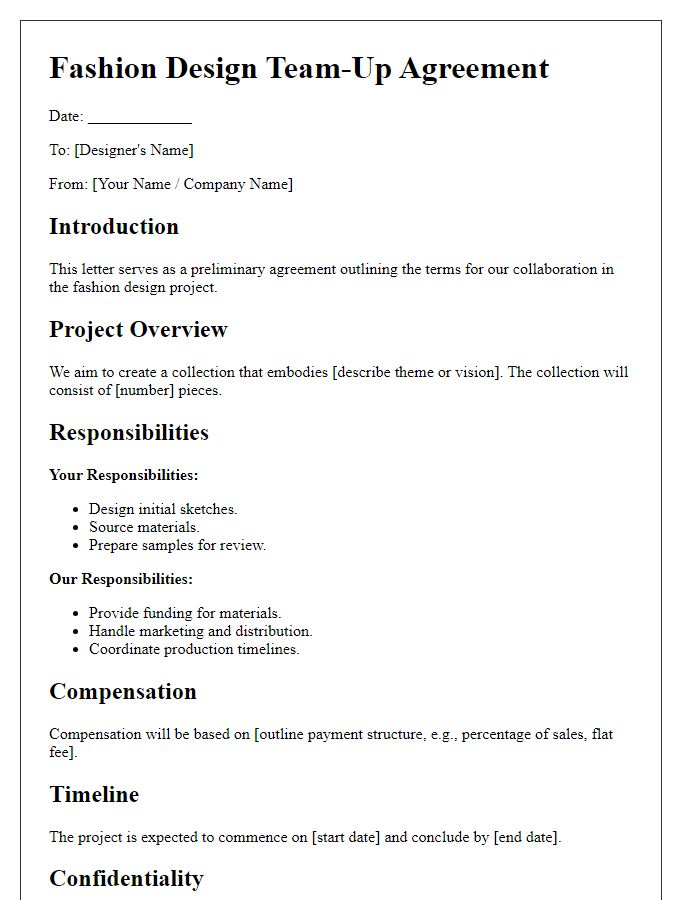
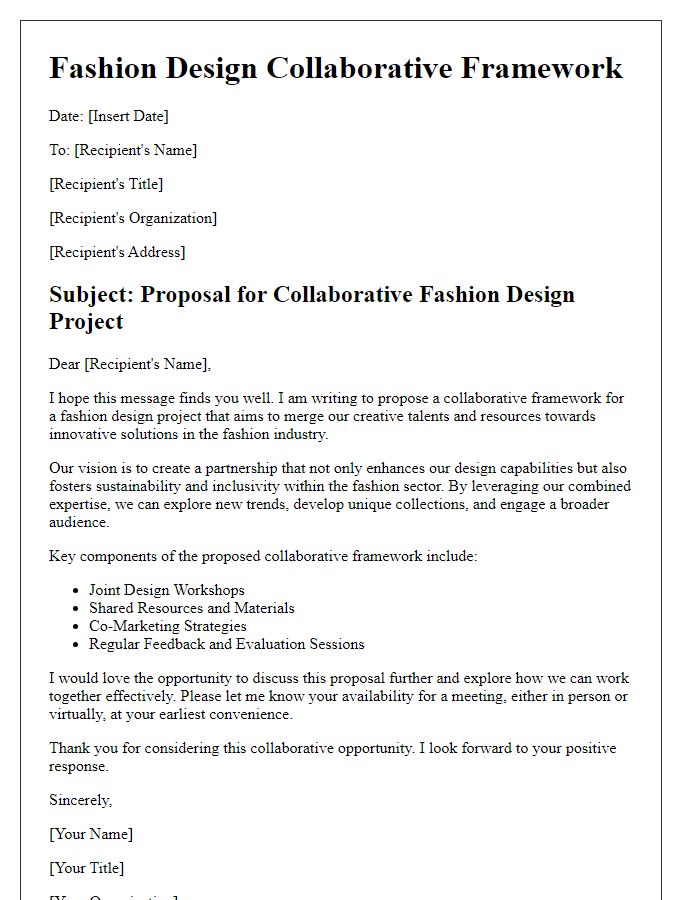
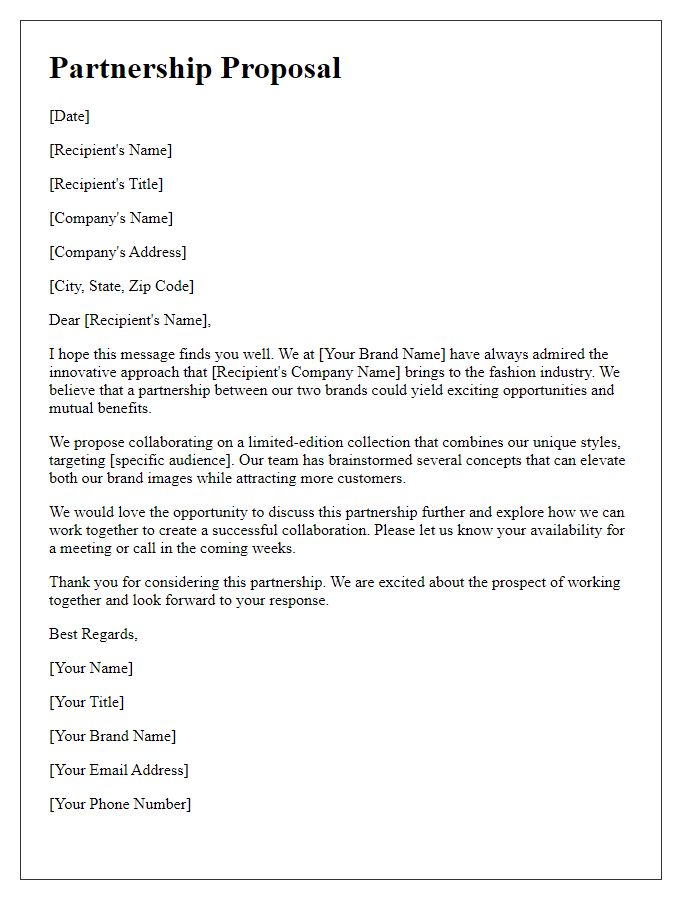
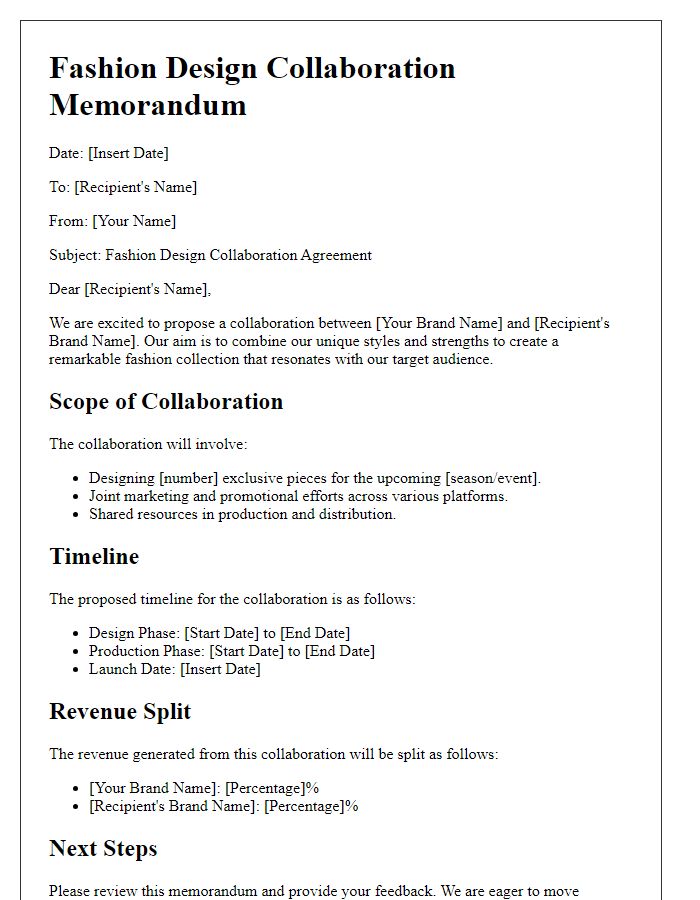
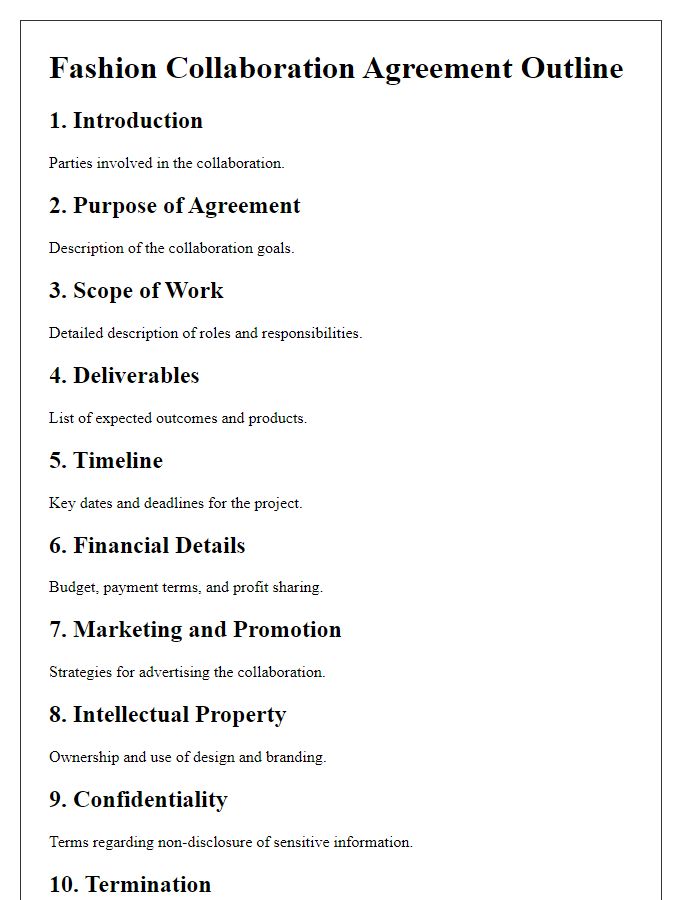


Comments